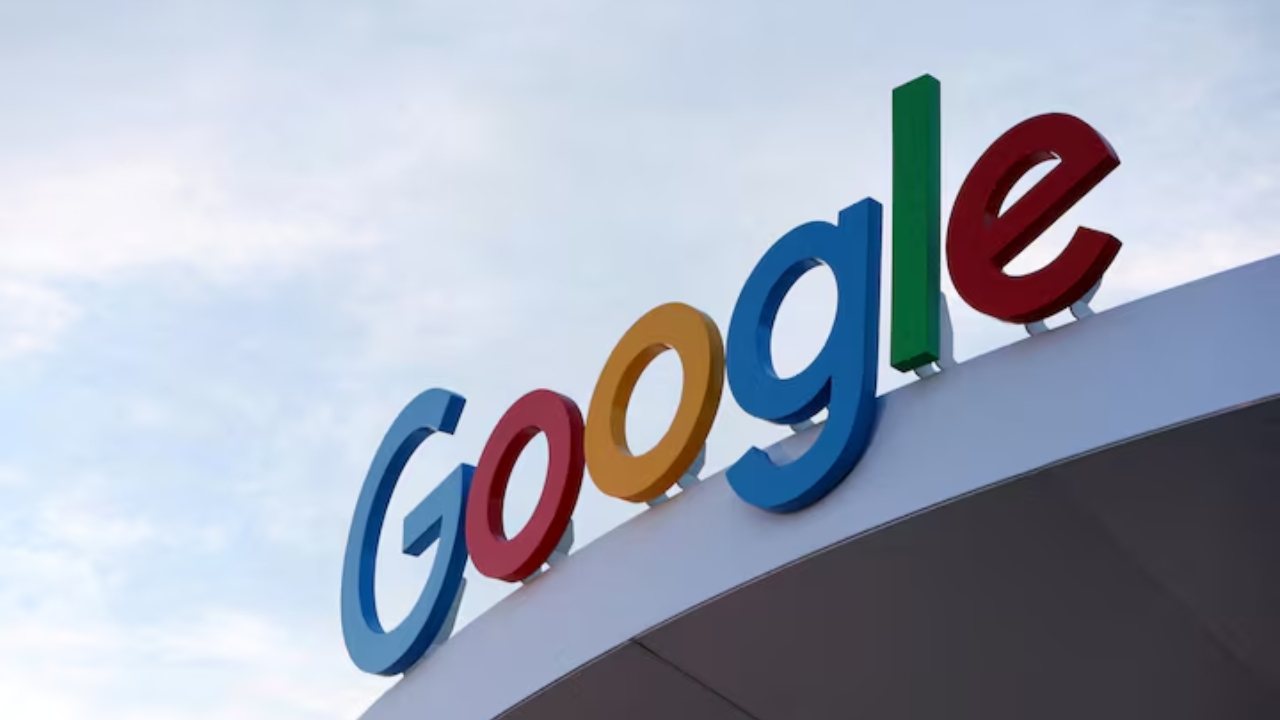
Tragic Bushfires in Victoria Claim Life and Destro
Victoria's bushfires have caused one fatality and the loss of over 300 homes, leading to widespread

Photo: Reuters
On September 12, 2025, Penske Media Corporation, the company that owns well-known magazines and websites like Rolling Stone, Billboard, and Variety, filed a lawsuit against Google in a federal court in Washington, D.C.
The company claims that Google has been using its journalism content without permission to create AI-generated summaries, known as "AI Overviews." These summaries appear at the top of Google search results and provide short overviews of news articles. Penske Media says that this practice has hurt its business by reducing the number of people visiting its websites.
This is the first time a major U.S. media company has sued Google specifically over its AI summaries. The lawsuit highlights the growing concerns among publishers and news organizations about how large tech companies use their content without paying for it. Penske Media says that the AI Overviews take content directly from its websites, summarize it, and show it to users without offering any compensation. According to Penske, this practice is unfair and harms their revenue, both from advertising and subscriptions.
Details of the Lawsuit
Penske Media argues that Google only includes publishers’ websites in search results if they allow their content to be used in AI Overviews. This means that publishers are forced to accept these terms if they want their articles to appear in Google search results. Penske claims that this creates a difficult situation for publishers because they either agree to let Google use their content for free or risk being less visible in search results.
The company also states that Google dominates the U.S. search market, controlling nearly 90% of all searches. This dominance gives Google the power to set conditions for publishers. Because most people rely on Google for finding news, being excluded from search results could significantly reduce traffic to a publisher’s website. This decline in traffic can then lead to a drop in advertising revenue, subscriptions, and overall online visibility.
Penske Media says that AI Overviews currently appear in about 20% of Google searches linking to its websites, and the company expects that number to increase in the future. This growth could further reduce traffic to Penske’s sites.
Penske also reports that its affiliate revenue—the money earned from advertisements, subscriptions, and partnerships—has fallen by more than a third from its peak by the end of 2024. The company believes that this decrease is directly related to Google’s AI summaries and the reduced traffic they cause.
Google’s Response
Google responded to the lawsuit by defending the AI Overviews. A company spokesperson said that these summaries are meant to improve the search experience for users by making it easier to find and understand content.
Google stated that AI Overviews help people discover relevant articles more quickly and provide a helpful overview before visiting the original website. The company also described the lawsuit as “meritless” and said it intends to fight the claims in court.
Google’s response highlights the ongoing debate about how AI can be used to summarize content. While tech companies argue that AI helps users by providing quick information, publishers argue that AI takes their work without permission and reduces their income. This case is likely to set a precedent for other media organizations concerned about similar issues.
Industry Concerns
Penske Media’s lawsuit reflects wider concerns among publishers about how large tech companies use news content for AI applications. Trade organizations such as the News/Media Alliance, which represents over 2,200 U.S.-based publishers, have criticized Google for not offering licensing agreements for AI content. This means publishers cannot earn revenue when their work is used to train or generate AI summaries.
Other AI companies, however, have signed agreements with major media outlets to legally use their content. For example, OpenAI, the creator of ChatGPT, has partnered with media organizations like News Corp, the Financial Times, and The Atlantic. These partnerships allow publishers to be compensated when their content is used for AI training or AI-generated summaries. Such agreements show that it is possible for AI companies to work with publishers fairly, but Google has so far not entered into similar deals.
The lawsuit also raises concerns about the future of journalism and online media. If AI companies use content without paying for it, news organizations could struggle financially. Many media outlets already face challenges from declining print readership and digital advertising revenue. The use of AI summaries that reduce website traffic could further threaten their ability to operate sustainably.
Potential Implications of the Case
If Penske Media wins the lawsuit, it could have major implications for the media industry. A ruling in favor of the company could set a legal precedent allowing other publishers to demand compensation for their content used in AI-generated summaries. This could force tech companies like Google to negotiate licensing agreements or change how they use content in AI systems.
Such a ruling could also benefit smaller publishers who may be more vulnerable to losing website traffic due to AI summaries. If courts recognize that using content without permission is unfair, it could help create a more balanced relationship between tech companies and publishers.
On the other hand, if Google wins the case, it could reinforce the current system where AI companies are allowed to use publicly available content without paying publishers. This outcome could make it harder for media organizations to earn revenue and sustain their operations. It may also encourage other tech companies to continue using content without compensating creators, raising long-term concerns about the future of journalism.
How AI Summaries Work
AI Overviews are generated using algorithms that read and summarize text from articles. The system identifies key points, condenses the information, and presents it to users in a brief format. For example, if a user searches for a news topic, the AI summary appears at the top of the search results, providing a quick overview before the user clicks on the full article.
While these summaries can be convenient for users, they may reduce traffic to the original websites. Users can get the essential information directly from the summary, which means fewer people visit the source page. This reduction in website visits can affect advertising revenue, subscriptions, and other income streams that publishers rely on.
Publishers argue that their work—journalistic reporting, research, and writing—is valuable intellectual property. They believe that AI companies should either pay for the use of this content or seek permission before including it in AI summaries. Without proper compensation, publishers may struggle to fund their reporting, which could ultimately impact the quality of journalism available to the public.
The Role of Google in Digital Media
Google has a dominant position in online search and digital advertising. Many publishers rely on Google to drive traffic to their websites, as appearing in search results is crucial for visibility. At the same time, Google’s AI features, like AI Overviews, give it additional influence over how users access content.
The lawsuit highlights the tension between tech companies and traditional media organizations. While tech companies argue that AI improves accessibility and user experience, publishers argue that their intellectual property is being used unfairly. Balancing the interests of both sides will be an important challenge for courts, regulators, and policymakers.
Industry Reactions
Media analysts and legal experts are watching the Penske Media lawsuit closely. Some believe the case could influence how AI-generated content is treated under copyright and intellectual property laws. Others suggest that the case will encourage other publishers to consider legal action if their content is being used in AI systems without consent.
Trade groups have voiced strong support for Penske Media. They argue that fair compensation for content is necessary to maintain a healthy and diverse media ecosystem. By holding tech companies accountable, these groups hope to ensure that publishers can continue producing high-quality journalism.
Possible Outcomes
The Penske Media case could have several possible outcomes:
Victory for Publishers: If Penske wins, other media organizations may demand compensation for their content used in AI systems. This could lead to licensing agreements with tech companies and more protection for journalistic work.
Victory for Google: If Google wins, AI companies may continue to use content without paying for it, potentially reducing revenue for publishers and changing the financial model of online journalism.
Settlement: Both parties could reach a settlement, in which Google may agree to compensate Penske Media for certain uses of its content. This could serve as a model for other publishers and tech companies.
Importance for the Media Industry
The case is important because it addresses how AI technology interacts with intellectual property rights. As AI continues to grow and summarize more content, the legal and financial implications for publishers will become increasingly significant. Courts will need to consider whether AI-generated summaries constitute fair use or whether compensation is required.
For media companies, the outcome of this lawsuit could influence strategies for protecting their content and generating revenue. Publishers may also consider partnerships with AI companies that provide proper licensing agreements, ensuring that their work is used responsibly.
Penske Media’s lawsuit against Google highlights a critical issue in the digital media and technology sectors. The case shows the challenges publishers face when their content is used by AI without permission or compensation. At the same time, it demonstrates the growing power and influence of tech companies in shaping how users access information.
The lawsuit will be closely watched by media organizations, tech companies, and policymakers. Its outcome could set important legal precedents for content usage, intellectual property, and AI-generated summaries. For now, the case underscores the tension between innovation and fairness, and the need to balance user access to information with protecting creators’ rights.